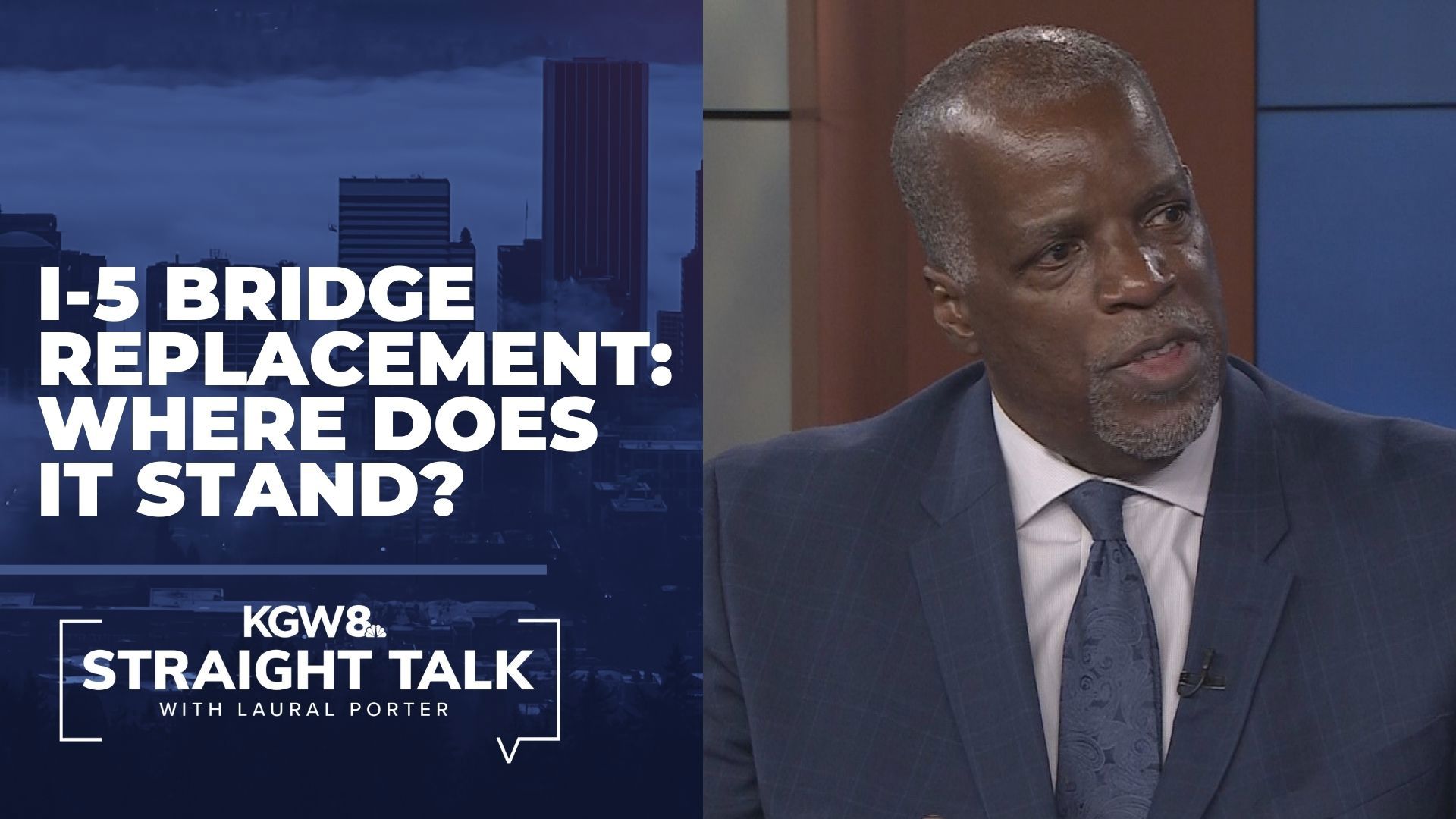PORTLAND, Ore. — As the Interstate Bridge Replacement (IBR) project continues to move through the environmental review process, several questions still loom in the air: What’s the bridge’s design? What’s the timeline? And are there going to be job opportunities for local businesses?
In this week’s episode of Straight Talk, Greg Johnson, the program administrator for IBR, and Aidan Gronauer, assistant director of civil rights and equity, join as guests to answer those questions and address the possibility of homes needing to be removed to make way for the new bridge.
The proposed $6 billion replacement bridge calls for several new add-ons that the current Interstate Bridge lacks, including a light rail line from Portland to Vancouver, as well as an upgrade to much of the surrounding five miles of freeway — all of which would increase the bridge’s footprint along I-5.
Documents obtained by KGW show that IBR could need to fully or partially acquire 176 parcels, including 43 residential units and 33 businesses, to make room for the replacement bridge.
Residents that could be impacted by the new bridge design have told KGW that there hasn’t been a lot of answers given by the IBR team.
"They come in and they talk about, you know, 'It's going to be fair, it's going to be equitable, the people that are going to build are going to be-' And I'm like, I don't care about that. I want to know if what you're going to do with my house — if anything," said Brenda Palmer. "And then we'll talk about fair and equitable, for the price you give me."
Johnson said because the final bridge’s footprint won’t be known until the record of decision in 2025, the IBR team isn’t having conversations yet with people who could be impacted.
“Whenever a project has to take property or businesses away from people, it is one of the most excruciating things that, that we have to do as public entities,” he added.
While growing up in Michigan, Johnson’s family was displaced when a freeway project cut right through their neighborhood, which he has said his dad never fully got over. He said that the use of eminent domain is “one of the last tools in the tool box” they will look at when trying to obtain a property for the project.
When it comes to informing people that their property will be impacted, Johnson said that there is a set federal process that they must adhere to and a big part of it is making sure that all involved know their rights.
But currently, he said they "just don't have enough information right now to be able to talk to folks."
Watch the full interview to listen to Greg Johnson and Aidan Gronauer talk about potential bridge designs, job opportunities and bridge costs. Straight Talk airs Saturday and Sunday at 6:30 p.m., and Monday at 7 p.m. Straight Talk is also available as a podcast.

